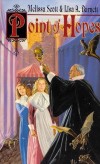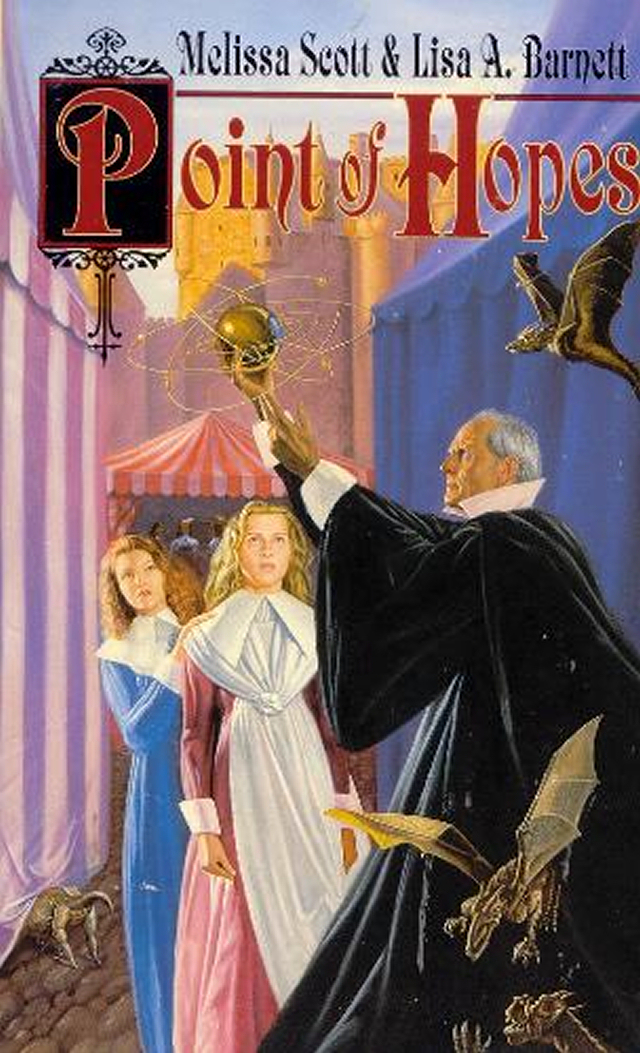 The Plot
The Plot
In the city of Astreiant, children have been disappearing — and not the sort of children that would be expected to run away to seek their fortune. Nico Rathe, adjunct pointsman at Point of Hopes, is determined that his investigation will see the children found before anything can happen to them. But with approximately zero leads, he’s mostly just poking around and hoping something pops out. Meanwhile, the city is growing more tense and hostilities are starting to break out.
My Thoughts
This wasn’t a book I’d picked out, and I again had a curious reluctance to pick it up and start it. But unlike the last book where that happened, once I got going with it I didn’t really have trouble continuing.
On its surface, this seems like a book I would like very much: I’m a fan of mysteries and I’m a fan of fantasy and this one has both. The surface impression is not entirely wrong, either.
The book’s main character, Nico Rathe, is the adjunct point in the area of Astreiant called Point of Hopes. It’s clear immediately that a ‘point’ is a sort of patrolman and detective rolled into one. But at that point (ha ha) the worldbuilding breaks down a little, and information is not provided as quickly as I desired it. First, I found that I was confused about the geography: I initially thought that Point of Hopes was a town and all these other places mentioned were also towns, all within the country of Astreiant. But that was a mistaken impression. Instead, Point of Hopes, Point of Dreams and so forth are actually neighborhoods within the city of Astreiant which is in the kingdom (queendom) of Chenedolle. I didn’t figure this out until about halfway through the book, at which point some things started making a good deal more sense.
There was also confusion with vocabulary. Now, it’s the prerogative of fantasy writers to make up new words for their new worlds, and I have nothing against that. The danger of made-up vocabulary, however, is a failure to adequately define a term in context. The authors mostly avoided this pitfall with one glaring exception. The world ‘point’ seemed to refer to the policemen, locations, the charges which were being filed and was just flung around far too freely for me to keep track of its meaning. The point at the point made a point on the point to pointy point point.
Setting these issues aside, the mystery gets underway quickly, with Rathe interviewing people to find out more information about what’s going on. As his investigation stalls, tensions begin to rise within the city, and the cityfolk let their fears dictate their actions — they become suspicious of outsiders and inclined to violence. It’s mostly due to this that Rathe encounters the unemployed soldier Eslingen and decides to use him as a mole within the household of someone his boss’s boss has decided to finger as a suspect in the disappearances.
The mystery continues at a very slow burn until the last quarter of the book when the pace picks up, some vital information is finally shaken loose, and things race to a conclusion. While I found the final confrontation anti-climactic, it didn’t seem inconsistent with anything that had been established earlier in the book and was all right.
My main lingering complaint after the end of the book was a definite lack of information that was conveyed about the world. It was clear from the details that did emerge the authors had done some thinking about the world and how its mechanics operated. But they were very stingy with their revelations! For instance, we are told throughout the course of the book that in this world, astrology is real, and the stars of your birth can have a significant impact on your odds of success or failure in certain professions. But though this was actually a major plot point, I still felt, by the end, I didn’t understand precisely how this worked.
There are also hints that homosexuality, particularly among the young, is accepted and even encouraged. There are indications that inheritance in this world is through the female line, with daughters being the first to inherit. The world is fairly equal, most likely as a direct result of the inheritance laws not requiring men to assure themselves of their sons being fathered by themselves. Ghosts are real. But none of this is detailed or explored — it’s all just an aside.
There is a sequel, which presumably would expand on the world and provide a deeper look at some of these issues, but I think this book could have been made better by the inclusion of just a little more time, a few more pages, put into explaining the setting.
In Short
As a mystery, it wasn’t bad. It worked a great deal like other mysteries set in the distant past (Death Comes as the End), in a distant location (Rowland’s Sano Ichiro series), or in an alternate Earth (Garrett’s Lord Darcy series). In other words, the mystery itself was not really ‘fair’ in that you couldn’t necessarily solve it before the investigator due to a lack of information about the setting — but on the other hand, the solution was not convoluted because of the lack of need to obscure the clues. As a fantasy, I felt like the worldbuilding had clearly been done, but that information wasn’t conveyed to the reader in as much depth as I wanted it. It was a slow read, but I did like it.

